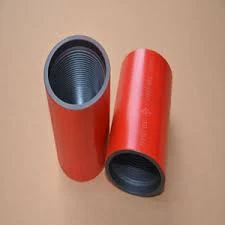- Afrikaans
- Albanian
- Amharic
- Arabic
- Armenian
- Azerbaijani
- Basque
- Belarusian
- Bengali
- Bosnian
- Bulgarian
- Catalan
- Cebuano
- Corsican
- Croatian
- Czech
- Danish
- Dutch
- English
- Esperanto
- Estonian
- Finnish
- French
- Frisian
- Galician
- Georgian
- German
- Greek
- Gujarati
- Haitian Creole
- hausa
- hawaiian
- Hebrew
- Hindi
- Miao
- Hungarian
- Icelandic
- igbo
- Indonesian
- irish
- Italian
- Japanese
- Javanese
- Kannada
- kazakh
- Khmer
- Rwandese
- Korean
- Kurdish
- Kyrgyz
- Lao
- Latin
- Latvian
- Lithuanian
- Luxembourgish
- Macedonian
- Malgashi
- Malay
- Malayalam
- Maltese
- Maori
- Marathi
- Mongolian
- Myanmar
- Nepali
- Norwegian
- Norwegian
- Occitan
- Pashto
- Persian
- Polish
- Portuguese
- Punjabi
- Romanian
- Russian
- Samoan
- Scottish Gaelic
- Serbian
- Sesotho
- Shona
- Sindhi
- Sinhala
- Slovak
- Slovenian
- Somali
- Spanish
- Sundanese
- Swahili
- Swedish
- Tagalog
- Tajik
- Tamil
- Tatar
- Telugu
- Thai
- Turkish
- Turkmen
- Ukrainian
- Urdu
- Uighur
- Uzbek
- Vietnamese
- Welsh
- Bantu
- Yiddish
- Yoruba
- Zulu
Exploring the Impact of Bull Plug Oil on the Oil and Gas Industry
The Importance of Bull Plug Oil and Gas in Modern Industry
In today's rapidly evolving energy landscape, the demand for efficient and reliable solutions in the oil and gas industry has never been greater. Among the crucial components that contribute to the safety and efficacy of oil extraction and transportation processes is the bull plug. This seemingly simple device plays a significant role in ensuring operational efficiency and preventing environmental hazards, making it an unsung hero in the sector.
Understanding Bull Plugs
A bull plug is a type of closure used in oil and gas systems to seal ends of pipe systems, valves, or other equipment. It is specifically designed to withstand high pressures and harsh conditions typical in oil fields and refinery operations. Bull plugs are critical for various applications, ranging from maintaining pressure in pipelines to preventing the escape of oils, gases, and other fluids.
Applications in Oil and Gas
In oil and gas extraction, bull plugs serve multiple purposes. They can be used during exploration and drilling activities to isolate certain sections of wells, ensuring that the fluids are contained and that there are no leaks. This is vital for both safety and environmental protection. Furthermore, bull plugs are often utilized in pipeline maintenance and repairs. By sealing off sections of pipelines, technicians can conduct essential inspections and repairs without shutting down entire systems, which would otherwise lead to significant operational delays and economic losses.
Economic Impact
bull plug oil and gas

The economic impact of utilizing bull plugs cannot be understated. In an industry where time is money, the ability to conduct maintenance without extensive downtime is invaluable. Bull plugs enable operators to manage their resources more efficiently, allowing for a smoother workflow that can significantly reduce operational costs. Additionally, by preventing leaks and spills, they help companies avoid potentially costly clean-up operations and penalties associated with environmental regulations.
Safety Considerations
Safety is a paramount concern in the oil and gas industry. Bull plugs contribute directly to enhanced safety by providing robust sealing solutions that prevent hazardous materials from leaking into the environment. Leaks can lead to catastrophic accidents, fires, or environmental disasters, which can have devastating consequences for both the company and local communities. By incorporating high-quality bull plugs into their systems, companies demonstrate a commitment to safety and environmental stewardship.
Environmental Protection
With increasing scrutiny on environmental practices, the oil and gas industry is under more pressure than ever to minimize its ecological footprint. Bull plugs play a crucial role in this endeavor. By effectively controlling the flow of hazardous materials, they help minimize the risk of spills that can damage ecosystems. Many companies are now investing in advanced materials and technologies for their bull plugs, aiming for improved performance and sustainability, further aligning with global environmental goals.
Conclusion
In conclusion, bull plugs may be small in size, but their impact on the oil and gas industry is significant. They are essential components that enhance operational efficiency, improve safety, and protect the environment. As the industry continues to evolve, the importance of quality bull plugs and similar devices will only increase. Companies that prioritize the use of innovative sealing solutions are more likely to thrive in this competitive environment, while also contributing to a safer and more sustainable future. The role of bull plugs is a testament to how even the simplest tools can drive progress in complex and challenging sectors like oil and gas.
-
Tubing Pup Joints: Essential Components for Oil and Gas OperationsNewsJul.10,2025
-
Pup Joints: Essential Components for Reliable Drilling OperationsNewsJul.10,2025
-
Pipe Couplings: Connecting Your World EfficientlyNewsJul.10,2025
-
Mastering Oilfield Operations with Quality Tubing and CasingNewsJul.10,2025
-
High-Quality Casing Couplings for Every NeedNewsJul.10,2025
-
Boost Your Drilling Efficiency with Premium Crossover Tools & Seating NipplesNewsJul.10,2025







